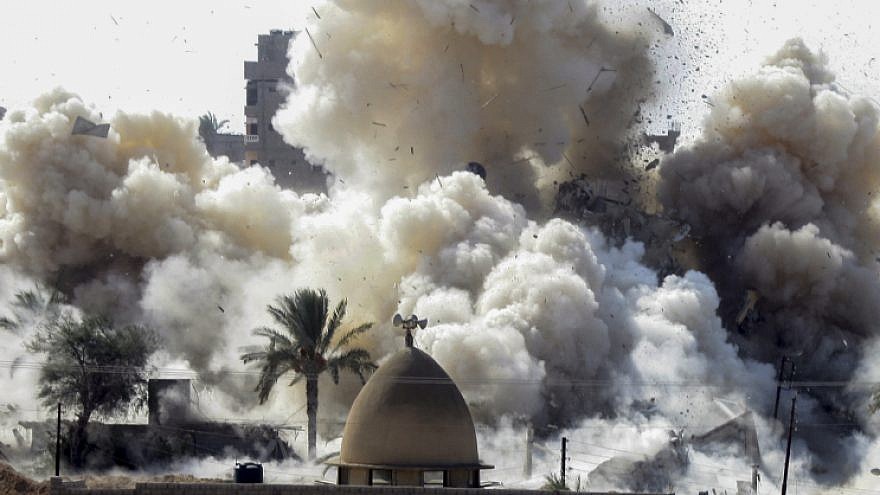The Sinai Peninsula has become a safe haven for terrorists and jihadist activity in recent years. Despite considerable efforts by Egyptian authorities, not only have the terrorists not been defeated, but the threat they pose has steadily grown. The apogee of the attacks came in late 2015, when Sinai-based terrorists shot down a Russian passenger jet, killing 224 people on board. In the wake of that attack, however, Israel decided to enter the fray, the New York Times reported over the weekend.
According to the revelations, for over two years, Israeli drones, helicopters and jets waged a covert campaign against terrorist groups in Sinai, consisting of over 100 airstrikes on Egyptian soil – sometimes one attack a week – under the approval of Egyptian President Abdel-Fattah el-Sissi.
Prime Minister Benjamin Netanyahu viewed the military campaign in Egypt as a tool to make the Americans understand that Cairo was in need of Israel’s help. Thus, for example, in February 2016, then-U.S. Secretary of State John Kerry convened a secret summit in Jordan with el-Sissi, Jordan’s King Abdullah and Netanyahu.
At the meeting, The New York Times reported, Kerry proposed a regional agreement in which Egypt and Jordan would guarantee Israel’s security as part of a deal for a Palestinian state. Netanyahu reportedly scoffed at the idea, reminding Kerry that the IDF was already buttressing Egypt’s military. If Egypt was unable to control the ground within its own borders, Netanyahu reportedly argued, it was hardly in a position to guarantee security for Israel.
Israel’s covert campaign in Sinai benefited both sides: The Egyptian army was finally able to create some positive momentum in its fight against the terrorist groups in Sinai, a fight that has persisted for five years already.
Israel, meanwhile, was able to reduce the threat it faced on along its southern border.
The New York Times described the countries’ collaboration in north Sinai as “the most dramatic evidence yet” of the geopolitical changes taking place in the region.
“Shared enemies like ISIS, Iran and political Islam have quietly brought the leaders of several Arab states into growing alignment with Israel – even as their officials and news media continue to vilify the Jewish state in public,” the report said.
American sources quoted in the report said Israel’s air campaign played a decisive role in helping the Egyptian armed forces gain an upper hand against the terrorist threat. The sources also said Israeli drones used in the campaign were unmarked, and that Israeli jets and helicopters covered up their markings. Some aircraft even flew circuitous routes to create the impression that they were based in the Egyptian mainland, according to the American officials. It was unclear, the officials said, whether Israeli special forces have set foot on Egyptian soil within the framework of the campaign.
Inside the American government, The New York Times said, the Israeli strikes are “widely known enough that diplomats and intelligence officials have discussed them in closed briefings with lawmakers on Capitol Hill.”


























